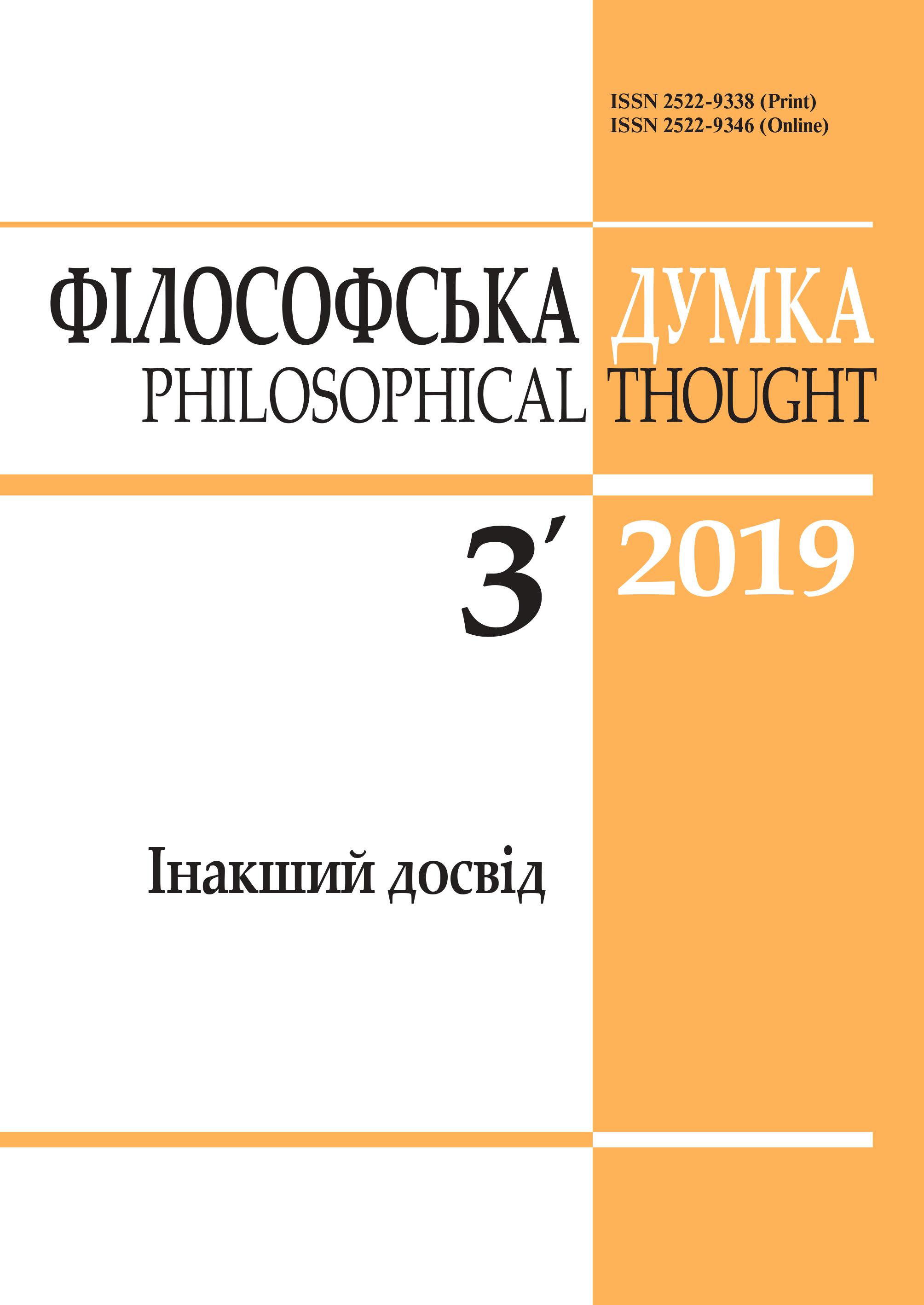Jiddu Krishnamurti’s apophatic philosophy of freedom
HISTORY OF PHILOSOPHY
DOI:
https://doi.org/10.15407/fd2019.03.104Keywords:
apophatism, total observation, self, conditioning, choiceless awareness, empti-ness, nothingness, inner revolutionAbstract
The author considers the particularities of Jiddu Krishnamurti’s negativism. Jiddu Krishnamurti is a well-known thinker, spiritual teacher, and master, who did not join in with anytrend of religion, philosophy or social and political movements. The atypical nature of his negativism is that Jeddah Krishnamurti rejects the external forms of achieving freedom and truth, emphasizing the impossibility of cultivating and developing a sense of love, and draws attention to the need for an internal revolution here and now. It is carried out only on the basis of a choiceless, total, and careful observation of the whole field of life, which includes the individual and society, the observer and the observed. Such observation leads to the destruction of the self as a center in which the past (experience) and projection (future) are intertwined. Being here and now, without any support for the past or for the future, a person realizes truth and freedom, and her/his only feeling is the love for the whole creation. The significance of the basic concepts used by Jiddu Krishnamurti several times to explain his position during meetings, as well as in his books is analyzed. These are concepts of active now, unconscious awareness, conditionality, denial, nothingness, emptiness, that make possible certain streamlining of his philosophy and defining its basic concepts.
References
Jones, C. A., Ryan, D. R. (2007). Encyclopedia of Hinduism. New York: Facts on File.
Kipling, J. R. (2009). The Ballad of east and West. [In Ukrainian] In J.R. Kipling, The Years Between. Poems (pp. 25--31. Ternopil’: Educational Book-Bohdan. [= Кіплінґ 2009].
Krishnamurti, J. (2018). Freedom from known. [In Ukrainian] Lviv: Terra Incognita. [= Крішнамурті 2018].
Krishnamurti, J. (1960a). Fifth Public Talk in Bombay. Retrieved from https://krishnamurti-teachings.info/transcript/fifth-public-talk-in-bombay-1960.html.
Krishnamurti, J. (1960b). Eighth Public Talk in Bombay. Retrieved from https://krishnamurti-teachings.info/transcript/eighth-public-talk-in-bombay-1960.html.
Krishnamurti, J. (2004). Notebook. S.l.: Krishnamurti Publications of America.
Krishnamurti, J. (2006). Commentaries on Living. First Series. New Delhi: Penguin Books.
Landau, R. (2008). God is My Adventure: A Book on Modern Mystics, Masters and Teachers. London: Faber and Faber.
Lutyens, M. (1975). Krishnamurti: The Years of Awakening. New York: Avon Books.
Pavlov, I. (2009). On the mind in general, on Russian mind in particular. [In Russian] The Herald of Practical Psychology of Education, 3 (20), June-September, 12-16. Retrieved from http://psyjournals.ru/files/27572/vestnik_psyobr_2009_3_Pavlov.pdf. [= Павлов 2009]
Downloads
-
PDF (Українська)
Downloads: 391
Published
How to Cite
Issue
Section
License
Authors who publish with this journal agree to the following terms:
- Authors retain copyright and grant the journal right of first publication.
- Authors are able to enter into separate, additional contractual arrangements for the non-exclusive distribution of the journal's published version of the work (e.g., post it to an institutional repository or publish it in a book), with an acknowledgement of its initial publication in this journal.
- Authors are permitted and encouraged to post their work online (e.g., in institutional repositories or on their website) prior to and during the submission process, as it can lead to productive exchanges, as well as earlier and greater citation of published work (See The Effect of Open Access).


